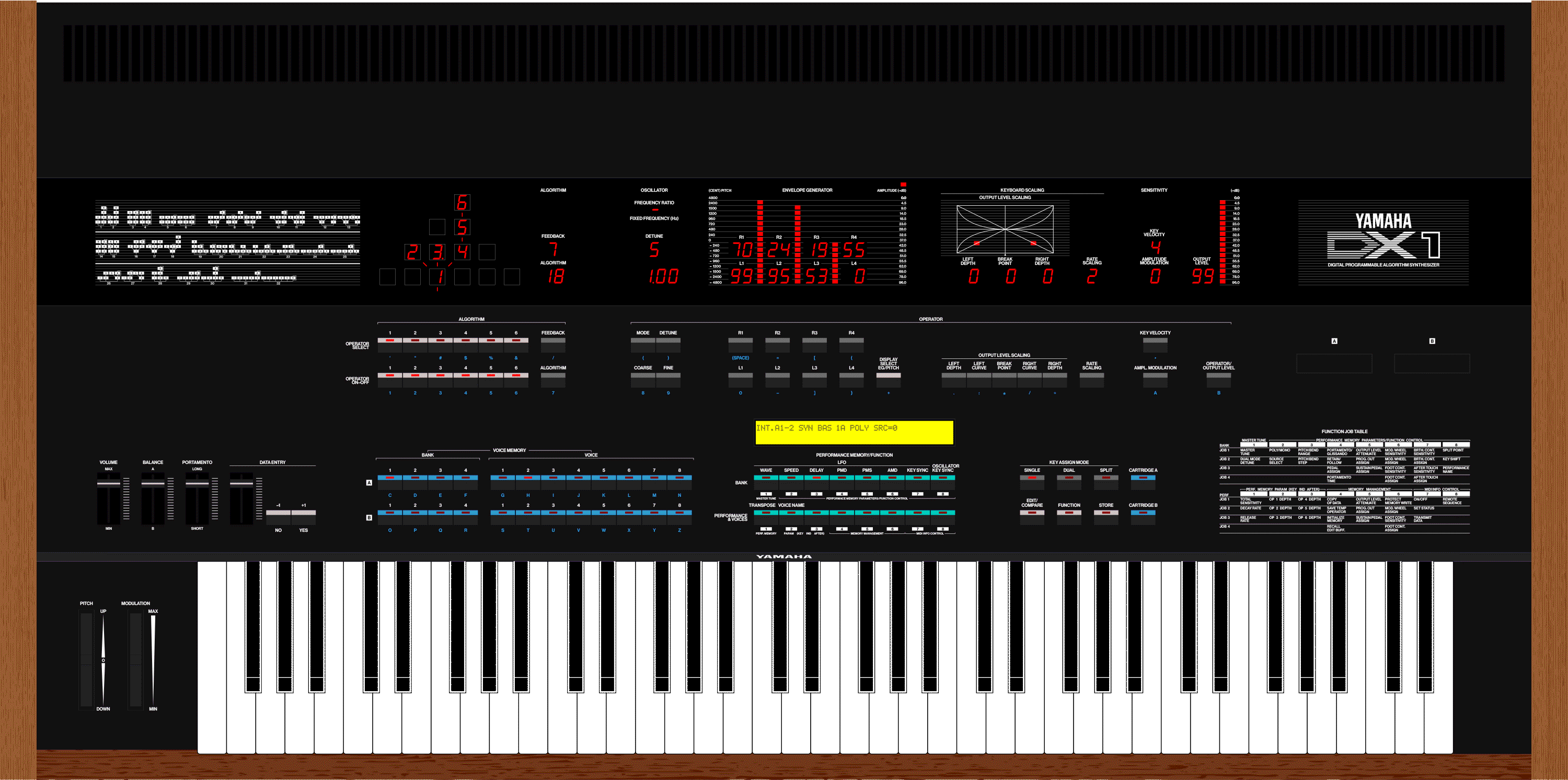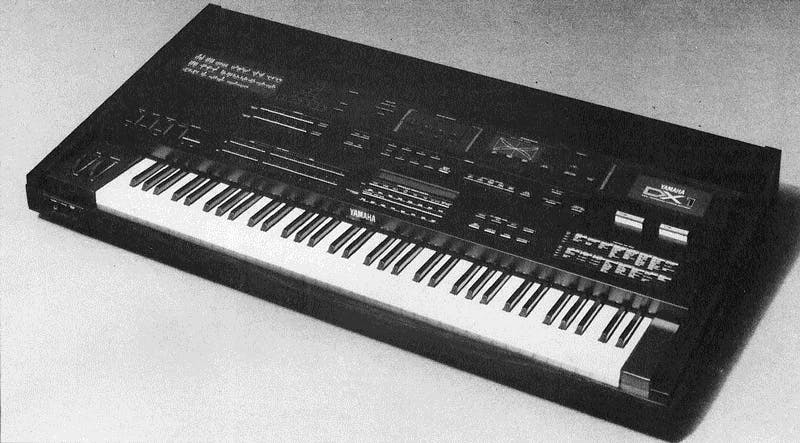1983 (Dec.)
Initially sold for ¥1,810,000
The retail version the earlier CSDX prototype, the DX1 was a digital synthesizer aimed at the large studios. With only 140 models made, a retail price of 13,900$ / 7,000£, and its huge size only few professionals could afford it.
As a top of the line machine for 1983, it features not only a dual DX7 setup (double sounds, double memory) but most importantly a 16bit DAC and much more control over the DX synthesis. The input philosophy is the same, one data entry point and rows of buttons to access the settings, but the big addition is an expanded interface that allows for a quick overview on the sound being created.
The DX1, even if it features wooden sides, doesn't take inspiration from the analog machines of 1 setting = 1 knob. It simply avoid cramming all the information in a small non-backlit LCD like the DX7.
And yet techonlogy run so fast that it took just 4 years for Yamaha to slowly give all these once expensive features to the consumer public, with the DX5 in 1985 and the DX7II later in 1987. However, this synthesizer remains the only one in the DX line with full size weighted keys and studio-ready XLR outputs on the back.
Features
- Dual programmable 6-operator 32-algorithm digital FM tone generators.
- Independent 8-parameter envelope generator for each operator.
- 32-voice x 2 internal RAM memory.
- 64 internal RAM performance memories, each storing a combination of voice and performance functions.
- Dual cartridge slots for ROM cartridges containing 64 voices or user-programmable 32-voice RAM cartridges. ROM or RAM cartridges storing data for the 64 performance memory locations can also be used.
- Independent audio outputs for each tone generator channel.
- Single, Dual, and Split play modes.
- 73 weighted wooden keys with key velocity and polyphonic after-touch sensitivity.
- 32-note polyphonic output in SINGLE play mode.
- Sustain footswitch, portamento footswitch, volume and modulation foot controllers, and breath controller inputs.
- MIDI IN, OUT and THRU terminals.
- MIDI send and receive channels independently programmable for each tone generator channel.

